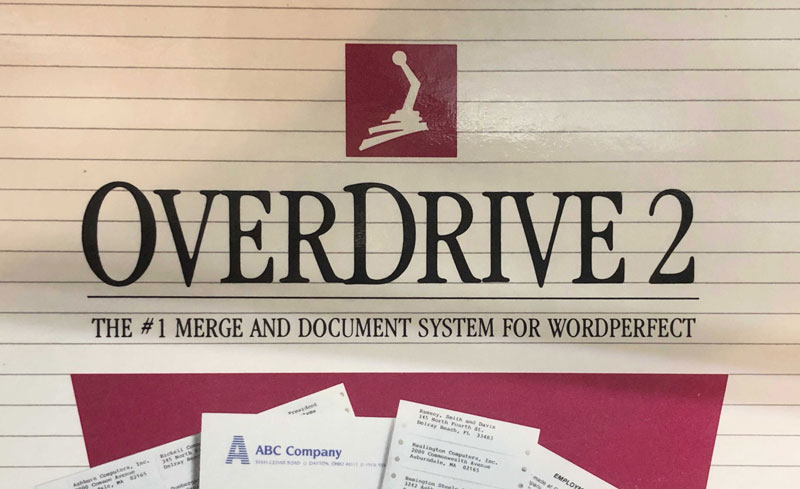Macmillan, a global publisher of science fiction and fantasy, offers a catalog of many great works of fiction. John Sargent’s recent letter to Macmillan authors, illustrators, and agents, regarding Macmillan’s changes to their library lending terms for ebooks, and the justification for the same, is another work of fiction. This work of fiction was used to justify a new policy to embargo newly released titles for library lending for 8 weeks from date of publication. Rather than creating demand for a new title with ebook marketing and then delighting readers with access to each new Macmillan title on the day of publication, libraries large and small, as well as library consortia, will be permitted to purchase only one (1) copy of each title. The story of how they arrived at this discriminatory practice that denies access to an author’s new work is a doozy.
Let’s start with the faulty key premise. In the letter, Macmillan claims that when they test-windowed a selection of Tor ebooks for library lending, it resulted in an increase in retail ebook sales. This conclusion fails to provide any reference or data of scope and scale. With the exception of a few Tor best-selling authors, the vast majority of Tor ebooks and their authors have few to zero units of their ebooks available in US public library catalogs. Without Macmillan sharing information on the starting point for the Tor pilot, any change (increase or decrease) is meaningless. For example, going from two to four ebook units in retail sales is a 100% increase. For the Tor ebook catalog, fewer than 100 units of recent titles were sold to libraries nationwide. Added to the reality of the few available units, the library lending model is self-limiting. How a few dozen copies of an ebook that only one user can borrow at a time or wait weeks to borrow impacts retail sales is a mystery. When Mr. Sargent was asked for data to support this conclusion by the Wall Street Journal in its July 25, 2019 article, Mr. Sargent “declined to be more specific.” The reason is clear, the Tor experiment was unremarkable.
In 2015, a similar test was conducted with unremarkable results. This test used best-selling titles from several UK publishing houses in a study, jointly commissioned by the Society of Chief Librarians and The Publishers Association, funded via the British Library Trust and Arts Council England. The results were predictable. The study concluded that withholding new ebook titles for library users to borrow had no material impact on retail sales. From the study results: “Commercial impact: From publishers, there is no evidence that the pilot damaged their e-book sales.” See: https://www.publishers.org.uk/EasySiteWeb/GatewayLink.aspx?alId=18916
Macmillan doubled down with this sci-fi and fantasy realm with more fictional data. Mr. Sargent’s letter claimed that “45% of the ebook reads in the US are now being borrowed for free from libraries.” No definition of an “ebook read” was offered, nor any details or data sharing on how this conclusion was reached. This claim, offered without any support, is ridiculous.
The data that I am aware of and is available to Macmillan on their ebook use in libraries includes:
1) Their sales of their titles to libraries; 2) The number of units purchased by each library; and 3) limited checkout info for their titles. For Macmillan to invent a new data metric called “ebook reads” – a metric that Macmillan has based an entire business strategy on, and that paints libraries as villains – requires at the very least a thorough explanation of their new invention.
Macmillan also overlooks a key concept in building its case. Library users borrow titles and place them on bookshelves, but often these titles are not read. It should be the hope of every author that their title is selected, borrowed and hopefully read and enjoyed. Public libraries provide a safe and welcoming place and online service to browse, borrow and read or not read a borrowed book. That’s one of the most beautiful things about public libraries. Unless Mr. Sargent and Macmillan have access to information on how public library users, in the privacy of their homes, access, or do not access, an ebook borrowed, the “45% ebook reads” claim is pure fallacy. I request Macmillan issue a retraction or provide detailed information on how they reached that conclusion – for without it they have no basis for this ridiculous “ebook read” claim.
The WSJ interview with Mr. Sargent reports that retail sales of Macmillan ebooks produce revenue to Macmillan between $9 and $10.50 per ebook title, yet revenue from libraries “generate “as little as $1.15 per read for a title checked out 52 times.” This is more nonsense.
First, the ebook model Macmillan uses to support this math is one they created: Two years or 52 checkouts, whichever comes first. Macmillan also developed the library pricing for this model. For Macmillan to paint themselves as victims, in a reality they created, is dystopian. Not only dystopian, it is victim blaming – as librarians are the victims of this flawed logic. It blames public libraries and librarians for the work they do to promote reading, books, authors and help sell the publishers’ products. It blames libraries for the millions of dollars they spend on Macmillan’s product, encouraging the reading of Macmillan books and authors. And yes, it blames librarians for the success they developed for ebook lending. Librarians are charged with accountability for every penny spent of taxpayer dollars and public funds. All of the levers are under Macmillan’s control – yet the one that would be most impactful in the calculus – the amount Macmillan pays authors for their premium library ebook pricing – is one that is not even whispered in the stories.
Second, and worse yet, is the misleading method Macmillan used to argue that libraries produce revenue of $1.15 per title borrowed. This assumes that most of Macmillan’s 19,000+ ebooks titles in their catalog were checked out at their maximum 52 checkouts, on or before the 2-year time limit expired. Public library data compiled by OverDrive reveals that their $1.15 figure is misleading and untrue.
For all the Macmillan ebooks that libraries acquired for lending, 79% expired and were removed from library catalogs because the two-year term limit occurred first – not because they were checked out 52 times. The data of actual lending of Macmillan ebook titles by public libraries supports an underutilization of the inventory. The average number of times a library loaned a Macmillan ebook during the 2-year term for each title was 11.5 times (far from 52 checkouts). Using this data, the average cost to the library to lend the title was $6.07 for every time a title is borrowed, 5 times the figure shared in the WSJ story. Furthermore, this includes users who never opened the title or read it – so the cost for every “ebook read” is still higher. This 11.5 average checkout includes Macmillan best-sellers such as Fire and Fury and others, which by all accounts is an outlier and overperformer. For the vast majority (75% of Macmillan catalog of titles during the 2-year term) an ebook was checked out an average of 8.3 times each.
One thing I will predict, Macmillan’s one (1) unit per library limit for new titles released will make one of the reported statements come true. As reported in the WSJ “Macmillan is betting that many consumers will be frustrated at the long waiting periods that are likely to develop if libraries have only one digital copy.” Here they will succeed. Their policy will frustrate their customers, librarians, fans of the authors, and ultimately, frustrate Macmillan authors and agents.
The anti-reader, anti-customer-centric, clearly anti-library sentiment is deafening. There is zero acknowledgement by Macmillan of the reality that library ebook readers are Macmillan readers and customers. The high degree of overlap between library users and book buyers is well documented. Libraries build audiences for authors and books, promote reading and discovery, and are a most trusted source for recommendation on what to read next. You can learn more about this from The Panorama Project Readers Advisory research and report. See https://www.panoramaproject.org/
Publishers who have invested in and dedicated resources to understanding how readers and authors win in the library market know how restricting libraries’ access to authors’ work narrows their reach, discovery, audience, and retail sales. For these publishers who recognize pre-release marketing and day of publication access to their new titles we are grateful. To Macmillan: End this planned new title embargo. Abandon your plan to “frustrate” your customers and reconsider the disrespect this policy exhibits to the thousands of librarians and volunteer public servants that promote your products, advance literacy, and create the opportunities for your authors to be discovered and enjoyed.


